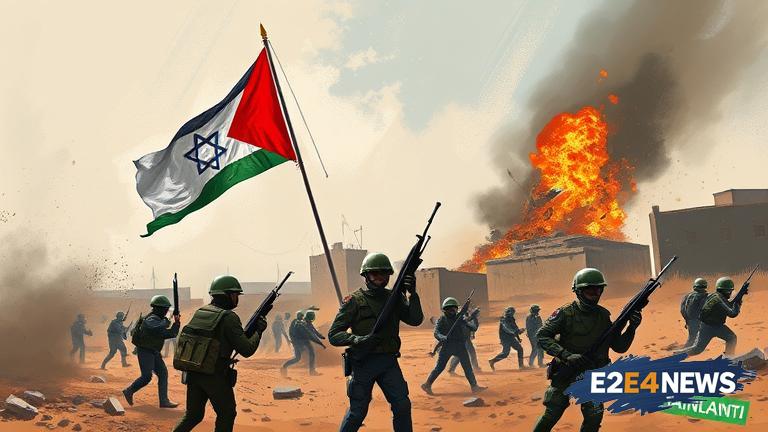The Israel-Gaza war has been ongoing for several weeks, with both sides engaging in intense fighting and suffering significant losses. The conflict has resulted in the deaths of hundreds of civilians, including women and children, and has left many more injured. The Israeli military has launched numerous airstrikes on Gaza, targeting what it claims are Hamas militant sites, while Palestinian militants have fired rockets into Israel. The international community has condemned the violence and called for an immediate ceasefire, but so far, a lasting resolution to the conflict has not been reached. The Israeli government, led by Prime Minister Benjamin Netanyahu, has stated that it will not stop its military operations until Hamas is defeated and the rocket fire into Israel ceases. However, the Palestinian Authority has accused Israel of using disproportionate force and of violating international law. The conflict has also had a significant impact on the humanitarian situation in Gaza, with many residents struggling to access basic necessities such as food, water, and medical care. The United Nations has warned of a potential humanitarian crisis in Gaza, with many residents at risk of starvation and disease. The international community has called for an end to the blockade of Gaza, which has been in place for over a decade, and for the establishment of a two-state solution to the conflict. However, the Israeli government has refused to lift the blockade, citing security concerns. The conflict has also had a significant impact on the regional stability, with many countries in the Middle East calling for an end to the violence. The United States, a key ally of Israel, has called for a ceasefire, but has also stated that it supports Israel’s right to self-defense. The European Union has also called for an end to the violence, and has urged both sides to return to the negotiating table. The conflict has been ongoing for decades, with both sides claiming the right to the same land. The Israeli-Palestinian conflict is one of the most complex and intractable in the world, with a long history of violence and mistrust. The international community has been trying to broker a peace agreement for many years, but so far, a lasting resolution has not been reached. The conflict has also had a significant impact on the global economy, with many countries imposing sanctions on Israel and calling for a boycott of Israeli goods. The Israeli government has accused the international community of bias and of not understanding the security concerns of Israel. However, the Palestinian Authority has accused Israel of using the security concerns as a pretext to maintain its occupation of the West Bank and Gaza. The conflict has also had a significant impact on the human rights situation in the region, with many Palestinians accusing Israel of violating their human rights. The international community has called for an investigation into the human rights abuses, but so far, no action has been taken. The conflict is likely to continue for many years, with both sides refusing to compromise on their demands. The international community must continue to pressure both sides to return to the negotiating table and to work towards a lasting resolution to the conflict. A two-state solution, with Israel and Palestine living side by side in peace and security, is the only way to bring an end to the violence and to ensure a lasting peace in the region.





